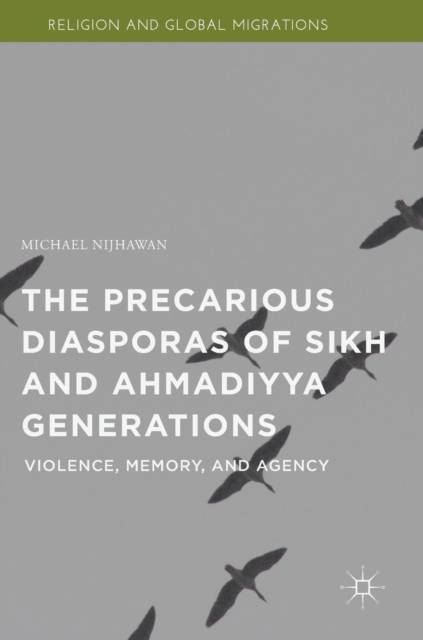
- Afhalen na 1 uur in een winkel met voorraad
- Gratis thuislevering in België vanaf € 30
- Ruim aanbod met 7 miljoen producten
- Afhalen na 1 uur in een winkel met voorraad
- Gratis thuislevering in België vanaf € 30
- Ruim aanbod met 7 miljoen producten
Zoeken
The Precarious Diasporas of Sikh and Ahmadiyya Generations
Violence, Memory, and Agency
Michael Nijhawan
€ 167,95
+ 335 punten
Omschrijving
This book examines the long-term effects of violence on the everyday cultural and religious practices of a younger generation of Ahmadis and Sikhs in Frankfurt, Germany and Toronto, Canada. Comparative in scope and the first to discuss contemporary articulations of Sikh and Ahmadiyya identities within a single frame of reference, the book assembles a significant range of empirical data gathered over ten years of ethnographic fieldwork. In its focus on precarious sites of identity formation, the volume engages with cutting-edge theories in the fields of critical diaspora studies, migration and refugee studies, religion, secularism, and politics. It presents a novel approach to the reading of Ahmadi and Sikh subjectivities in the current climate of anti-immigrant movements and suspicion against religious others. Michael Nijhawan also offers new insights into what animates emerging movements of the youth and their attempts to reclaim forms of the spiritual and political.
Specificaties
Betrokkenen
- Auteur(s):
- Uitgeverij:
Inhoud
- Aantal bladzijden:
- 289
- Taal:
- Engels
- Reeks:
Eigenschappen
- Productcode (EAN):
- 9781137499592
- Verschijningsdatum:
- 21/09/2016
- Uitvoering:
- Hardcover
- Formaat:
- Genaaid
- Afmetingen:
- 154 mm x 220 mm
- Gewicht:
- 480 g

Alleen bij Standaard Boekhandel
+ 335 punten op je klantenkaart van Standaard Boekhandel
Beoordelingen
We publiceren alleen reviews die voldoen aan de voorwaarden voor reviews. Bekijk onze voorwaarden voor reviews.











